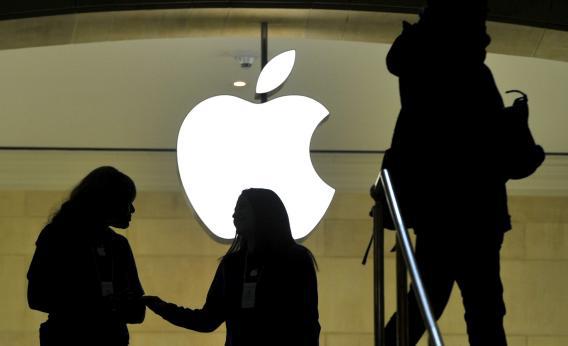Apple and Exxon Mobil may not be so different, after all. The two seemingly disparate companies share more than nearly identical U.S. market-leading values of about $400 billion. Both are threatened by shrinking margins and the struggle to replace their precious wares. Exxon in various iterations has survived four times longer than Apple, but is just as vulnerable.
The mortality rate in technology is high. Rapid advances in hardware and software regularly buffet the sector. Firms rarely survive more than one wave of technology, leaving their intellectual property with a short shelf life. Energy companies are more durable. Exxon’s roots stretch back to 1870. Oil explorers in particular sit on supplies of a commodity that is hard to replace.
Investors are starting to worry that Apple will succumb to the industry’s life-cycle squeeze. After soaring past $650 billion, its market capitalization has tumbled by more than a third in the past five months. Rival smartphones are gaining ground on the iPhone, which accounts for more than half of Apple’s sales and an even greater slug of profit. Operating margins slipped five percentage points to 32 percent in the last full quarter. If price becomes the next battleground, they may slide further still. Apple will have to innovate anew to reverse the trend.
Exxon faces a similar dilemma. The Texas-based company must be increasingly creative to extract oil from rocks, ocean depths and frigid arctic wastes. That explains a 90 percent surge in capital spending since 2007, to about $40 billion annually. Even so, Exxon has barely replaced its reserves. It also must contend with an additional pressure that Apple doesn’t: government actions discouraging the use of oil and fostering more competitive substitutes. It’s a recipe for slimmer margins or, in an extreme case, extinction.
In that sense, Apple’s problems may be easier to solve. If it can develop a new blockbuster, like a TV that already is anticipated, investors could rediscover their enthusiasm for the company, valued at 10 times estimated 2013 earnings. Exxon trades at a similar multiple, though its problems are arguably less tractable, with easily available oil already tapped. Either way, Apple and Exxon find themselves strangely in the same boat.
Read more at Reuters Breakingviews.
